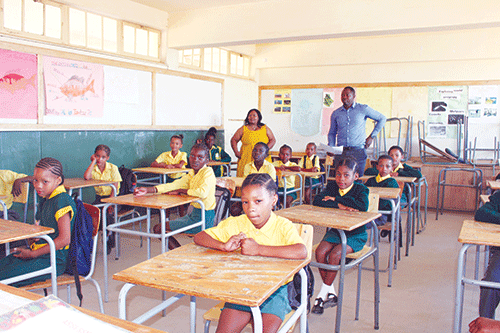Minister Anna Nghipondoka said education cannot afford to operate in isolation and the collaboration with relevant stakeholders is underway to revive the sector.
She said this at an engagement with school administrators and student organisations during a meeting in preparation for the Transforming Education Summit at Eros Primary School yesterday.
Nghipondoka said the objective of the summit is to come up with a comprehensive country report that encompasses the dreams of all the broader stakeholders.
“Achieving these objectives requires inclusive dialogues and meaningful engagements across the full set of stakeholders, particularly the young people, students and teachers,” she shared.
Nghipondoka said: “Our purpose in facilitating the regional consultations is aligned to the pre-summit objective to harness (connect) evolving discussions on transforming education, elaborate initial content for the summit, and generate momentum in the lead up to September. This will provide an opportunity for us to put education at the centre of the political debate.”
The Transforming Education Summit (TES) is based on five thematic tracks which must be taken into consideration during this regional consultation process, inclusive, equitable, safe and healthy schools; learning and skills for life, work and sustainable development; digital learning and transformation; teachers, teaching and the teaching profession, and financing of education.
Deputy executive director Edda Bohn said, “Namibia is participating as a UN member state in this initiative of transforming education through our national consultations that are also happening regionally.”
A contentious issue is free education and what it really means, with Bohn saying there is a need to unpack the cost of education and how it can be funded in a sustainable manner.
“We have seen in our context, as we pronounced free education and came up with education grants for schools in replacement of the school development fund. We have also seen that the national resources were dwindling,” she stated.
Bohn added: “Year after year, there was a reduction in that allocation to the school grants. We need to diversify how we sustainably fund education that is now beyond what the government does already that is funding the teachers, infrastructure and the Learning resource materials- there are more cost drivers in the education of course.”



